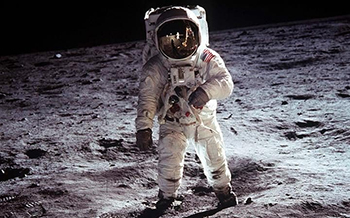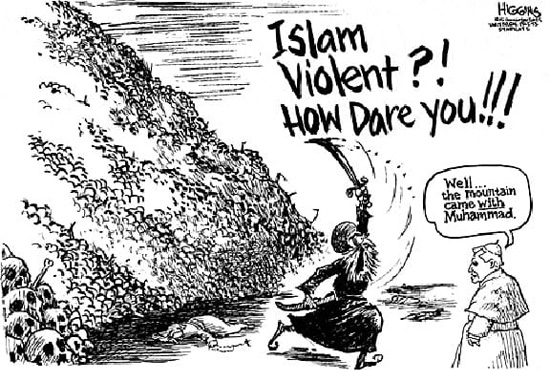5 Annoying Modern Debates That Have Been Around Forever

You can't discuss issues like climate change and gun control these days without bracing yourself for an onslaught of angry rants and personal attacks. It's not like back in the good old days, when proper ladies and fancy gentlemen could calmly discuss any political issue over a swirled brandy or ten. That's what we like to think, anyway. In reality, certain issues have always been a societal clusterfuck. Like ...
"Fake News" Has Always Been A Controversy
"Fake news" is the buzzterm this year, but accusations of outlets making shit up -- both justified and not -- go back far before 2016. Joseph Pulitzer, the namesake of the highest press award in the world, ran The New York World, the 19th century's equivalent of Breitbart.
The World routinely exaggerated or flat-out invented crime and war stories. During the Spanish-American War, they slapped a drawing of a young woman's naked ass on the front page and accused perverted Spanish soldiers of forcing innocent women to strip for them. The same thing happened during World War I -- American papers fabricated stories of German troops cutting off the breasts of Belgian nuns, because if the country was going to war anyway, it might as well get nice and angry about it.
But even that wasn't new, because critics have been calling out this kind of baseless crap since the invention of the printing press. Alexis de Tocqueville supported the free press, but noted that they "frequently lead the citizens to launch together into very ill-digested schemes." Voltaire called out the Vatican via bullshit pamphlets which blamed the Lisbon earthquake of 1755 on divine wrath, complete with stories of devout survivors who were saved by visions of the Virgin Mary. A false 19th-century American story about Irishmen stealing Bibles from public schools led to attacks on Catholic churches, and that was an improvement over the 18th century, when a man's suicide became a fake story about a father murdering his son for wanting to convert to Catholicism, which led to said father being tortured to death. Say what you will about Fox News or CNN, but at least they haven't tortured anybody to death.

There's more. A lot more! Master media manipulator Ben Franklin devised a fake news story about British-paid Indians scalping Americans to inspire colonists to join the Revolution. And in the 1830s, The Sun peddled the Great Moon Hoax, a series of six articles about a powerful new telescope being used to look at the moon (true) and discovering a civilization that included unicorns, two-legged beavers, and pyramids (probably fake). Such nonsense was enough to ... help establish The Sun as a leading American paper.

The media we consume today is actually the cleaned-up, responsible version that came about after people got sick of riots induced by fearmongering and lies. Just look at the great journalism that's been done in more modern times, like the Watergate investigation! Or, uh, that time mainstream outlets like ABC News gave credence to a now-debunked Satanic worship scare in the '80s!
Yeah, there's always been sensationalist crap mixed in with the real stuff. We're just slowly getting better at calling it out.
Anti-Vaxxers Have Been A Problem Since The Invention Of Vaccines
The modern anti-vaccine movement consists of thousands of websites, celebrity endorsements, protests, sketchy "studies," and novelty coffee mugs. But they're nothing compared to the extreme anti-vaxxers of yesteryear. When Dr. Edward Jenner introduced his smallpox vaccine in the early 1800s, critics falsely claimed that it made people discharge disgusting fluids, and that children would develop cattle mange, grow bumps on their head, and even start running around on all fours and acting like cows. Of course, that was pure paranoia, largely fueled by ignorant, uh ... everything.
The same thing happened at the turn of the 20th century, when America was ravaged by a smallpox epidemic. The government made vaccinations mandatory, and even employed police and soldiers to enforce them. The response was riots, strikes, and legislation that reached the Supreme Court, because today's annoying Facebook argument was yesterday's street battle.

Some concerns were understandable (African-Americans didn't trust the government for obvious reasons, and workers were worried that inflamed arms would cost them a few days' wages), but most protesters were, as papers wrote at the time, "hopeless cranks." But that didn't stop anti-vaxxers, who had their own celebrity endorsements. Frederick Douglass, Leo Tolstoy, and George Bernard Shaw were all anti-vaccine.
The old-timey anti-vax movement even had a mascot. Raggedy Ann, possibly one of the most beloved homeless children's characters of all time, was absorbed into the anti-vaccination crusade when creator Johnny Gruelle's 13-year-old daughter died in 1915, possibly because of complications from an infected mandatory vaccine (the medical community understood the benefit of vaccines then, but they still sucked at a lot of things). Activists claimed the doll was created in memory of Gruelle's poisoned daughter, even though it was patented months before she died. But who lets facts get in the way of a good meme?

The Olympics Have Been Over-Budget Since The '30s
Once every four years, the Olympics roll around and we all pretend to care about swimming and gymnastics. We also pretend to care about foreign countries by pointing out that unless you're a Russian oligarch, a corrupt bureaucrat, or an industrious prostitute, the Olympics are a ruinous financial deal for the host city. It turns out that inconveniently located velodromes don't offer a ton of functionality once the Olympics are over, so many of the shiny new buildings we see on TV quickly begin to rot. And that leads to passionate debates about whether governments should even be spending their money on the games in the first place.

But the Olympics weren't always an exercise in excess. The first official modern games, held in 1896, ran six times over budget ... to a final cost of about 10 million modern dollars. For comparison, the 2008 Beijing Olympics cost 44 billion dollars. What the hell caused costs to skyrocket? Well, like with so many other problems in life, you can blame Hitler. Before the 1936 Berlin Olympics, the games were a low-key affair. But the Nazis saw them as an opportunity to show off their ideology, so they built a 100,000-seat stadium, invented the torch relay, and gussied up Berlin for the big show. In doing so, they spent the modern equivalent of $1.7 billion -- money we bet they really wished they still had by around 1943.
Once the world recovered from World War II, everyone remembered that the Berlin games were pretty neat, minus all the Nazis. So the Olympics became an opportunity for countries to strut their stuff -- Munich wanted to brag about how the world had stopped hating Germany, Tokyo wanted to show off its modernization, Montreal wanted to remind everyone that Canada exists, etc. But that nationalist preening turned the Olympics into a guaranteed financial boondoggle. The 1976 games took Montreal three decades to pay off, and Rio is currently offering its creditors used air conditioners and electrical cables instead of cash.

We've Been Fighting About Weapons Bans As Long As We've Had Weapons
The gun control debate feels like a uniquely American problem, but swap guns for swords and the discussion would have looked right at home with a bunch of old dudes wearing togas. Two famous ancient Greek smarty-robes, Thucydides and Aristotle, denounced armed men walking the streets as a threat against law and order, and doing so was indeed illegal in most Greek cities of the time. Because every debate needs a catchy phrase to fit on a bumper sticker or in a Tweet, Thucydides wrote that Athenians should "Let the laws rule alone. When weapons rule, they kill the law." Tough to argue against a guy wise enough to leave 79 characters for hashtags.
However, modern gun rights advocates would agree with Aristotle's argument that "those who control the weapons also control whether a constitution will survive or not." Aristotle saw civilians carrying weapons in public as threatening violent revolution, so he was petrified of a different kind of tyranny than what 20 years of NRA presidents have claimed to defend against.
Later, Roman lawmakers enshrined their own "Stand Your Ground" law, making it perfectly legal to kill someone who attacked you on the road or wandered onto your farm in search of "plunder." But carrying weapons in cities was a big no-no, to the point where it was considered blasphemous. That's why Caesar was assassinated outside the city limits, which probably prompted a lot of sarcastic comments about no-sword zones. Weapons being considered dangerous in cities but necessary for survival out in the country? Sounds vaguely familiar ...

The issue got more complicated as weapons got more elaborate. In the 12th century, the Church, the emperor of Germany, and other rulers tried to ban crossbows for being "un-Christian." The issue came down to literal class warfare -- crossbows were deadly and required little skill to operate, meaning any yokel armed with one could kill a knight or nobleman. (Richard the Lionheart was killed by a potshot from some random dude defending a castle he was besieging.)
Centuries later, nobles had the same concerns about guns. Henry VIII banned anyone who made less than 100 pounds from owning a firearm, and France soon followed suit. So governments have always kept weapons out of the hands of the masses because they feared giving the people power, but it was also often done to uphold order and save lives. That double-sided issue has been a problem for millennia, so it's unlikely the next Facebook argument you see is going to solve it.

The U.S. Government Has Always Treated Some Minorities Like Terrorists
In the late 19th and early 20th centuries, fear spread after a series of politically motivated bombings were committed by members of a specific minority. These attacks convinced many Americans that every member of this ethnic group refused to assimilate, harbored a hatred of America, and held views that were fundamentally incompatible with the American lifestyle. So there was an angry and violent backlash against this group. We are speaking, of course, about Italian-Americans.
There were millions of Italians in America, and only a handful were violent anarchists, but that was enough to fuel some harmful stereotypes. Americans were convinced that they were all scheming to overthrow capitalism. The New York Times described Italians as "sneaking and cowardly" and "descendants of bandits and assassins." Their food was considered weird, their version of Catholicism was considered heretical, and they were thought to be prone to violence and anti-democratic ideals. So they faced discrimination from police, landlords, employers, and most heinously of all, shitty political cartoonists.
Huh, do those remind you of anything?

If you were to go on a tirade today about how those lazy Italian-Americans are ruining the country, you'd sound like a confused maniac with a grudge against pizza. But between 1890 and 1920, there were 50 documented cases of mobs lynching innocent Italian-Americans. 1919 and 1920 also saw the Palmer Raids, when the government arrested thousands of European immigrants, hundreds of whom were eventually deported, for the vile crime of having vowels at the end of their last names.
Luckily, the brutality of the raids started to shift public opinion, and America turned its attention to ... being suspicious of commies and the Japanese instead. This sort of thing is cyclical, so if you feel discriminated against in modern America, take heart -- your grandchildren will be free and welcome to hate a totally different minority.
For more ways our ancestors beat us to the punch, check out 5 Complaints About Modern Life (That Are Secretly Total BS) and 7 Modern Conveniences That Are Way Older Than You Think.
Subscribe to our YouTube channel, and check out 4 Awful Ways Our Ancestors Got High (That We Tested!), and other videos you won't see on the site!
Follow us on Facebook, and we'll follow you everywhere.
Want to know how to go mano-a-mano with a president? Daniel O'Brien can help, with How to Fight Presidents: Defending Yourself Against the Badasses Who Ran This Country!








